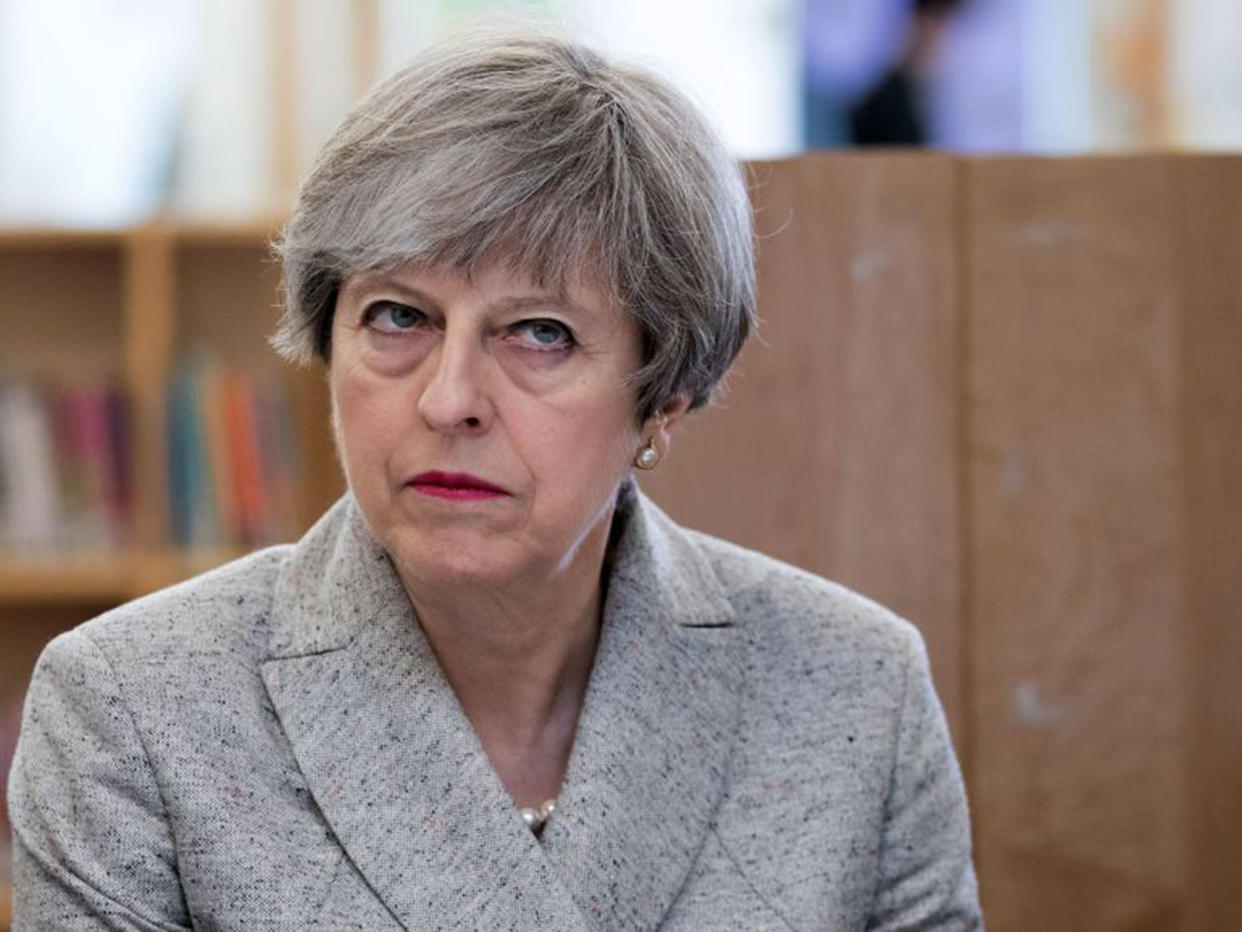Thank Jeremy Corbyn, not Theresa May, for the Conservatives' latest U-turn

When Philip Hammond urged Theresa May to call a snap election, he is said by ministers to have argued that the hit to the economy and living standards from Brexit would make it very hard for the Conservatives to win the next election due in 2020.
Although the Chancellor got a frosty response from May, to his surprise she changed her mind and he got his election. But his hopes, that with one bound, the Tories would be free of their economic woes, were shattered by May’s disastrous campaign.
Despite that, the Chancellor is clearly enjoying life. He knows that if May had increased her slim majority, he would have been sacked, and probably replaced by Damian Green or Amber Rudd. Instead, Hammond can push the boundaries of government policy as he tries to soften May’s hard Brexit, knowing she lacks the authority to rein him in.
But there is little for Hammond to celebrate on the domestic front. He has conceded that voters are tiring of austerity, insisting the Tories are “not deaf” to the message of 8 June, while adding that the case for “sound money” has to be made anew.
It was no surprise the Tories lost the economic argument in the election since they barely made an argument at all. That left the field clear for Jeremy Corbyn to run on an anti-austerity ticket. Labour was in tune with the new public mood. The NatCen British Social Attitudes Survey published today shows that, for the first time since the 2008 financial crisis, more people want to see increased spending and taxes rather than to keep them at the same level. It is a tipping point.
A survey by GQR for the TUC found that some 62 per cent of voters who moved to Labour in the election believed public services needed more money, even if that meant taxes rising. Some 68 per cent of people who voted Tory want the one per cent cap on public sector pay rises lifted.
No wonder Labour is making hay. Its amendment to the Queen’s Speech calls for an end to the pay cap and plays to recent events, opposing further cuts to the police and fire services while commending their response to the terrorist attacks and Grenfell Tower fire.
Although the Government’s agreement with the Democratic Unionist Party will ensure the amendment is defeated, this will only heighten the Tories’ troubles as they try to defend their dodgy deal. Their line that we can afford a £1bn bung for Northern Ireland because we have a “strong economy” puts a question mark over the need for more austerity. It seems to be selective.
The election has only increased the pressure on Hammond, the opposite of what he intended. Plans to means-test pensioners’ winter fuel allowances and raise the state pension by at least 2.5 per cent a year have been dumped; they would never have got through the Commons. A growing funding crisis in schools will be worsened now that the Government will not secure savings by ending free lunches for five-to-seven year-olds, also abandoned. Having forced local authorities to bear the brunt of the cuts since 2010, ministers will be pilloried if they fail to meet the cost of fire safety measures in tower blocks. That is before Hammond even thinks about health and social care, which will need more money just to stand still.
The Tory mood is changing. Sir Oliver Letwin, the former Cabinet minister seen as an axe man at the 2001 election when he hinted at £20bn of cuts, now acknowledges the case for austerity to be eased. In this afternoon’s debate on the Queen’s Speech, other Tories joined the clamour for a rethink. Sarah Wollaston said: “There is no doubt in my mind that seven years of this [pay rise] cap are now having a significant impact on morale within the health service and across our wider public sector."
All is not lost for the Tories. The Social Attitudes Survey suggests that people still want a strong line on crime, security and defence, areas on which the Tories ought to be able to beat Labour. But the election revealed the people’s priority, so the Tories will first have to eliminate their negatives on public services.
While I was writing this piece, Downing Street sources signalled that the public sector pay cap will be reviewed. It was due to last until 2019 but it seems that May now wants to end it in the Budget this autumn. Hammond is not convinced yet. The test will be whether the Government meets the higher pay bill; if he does not, then hospitals, schools, the police and the fire service will come under even more pressure.
With another election possible at any time, the Tories do not have a moment to lose. They say they are listening to voters and learning. But they wouldn’t be lifting the cap if May had won her majority. So we should really thank Corbyn rather than May for her latest U-turn.

 Yahoo News
Yahoo News 
